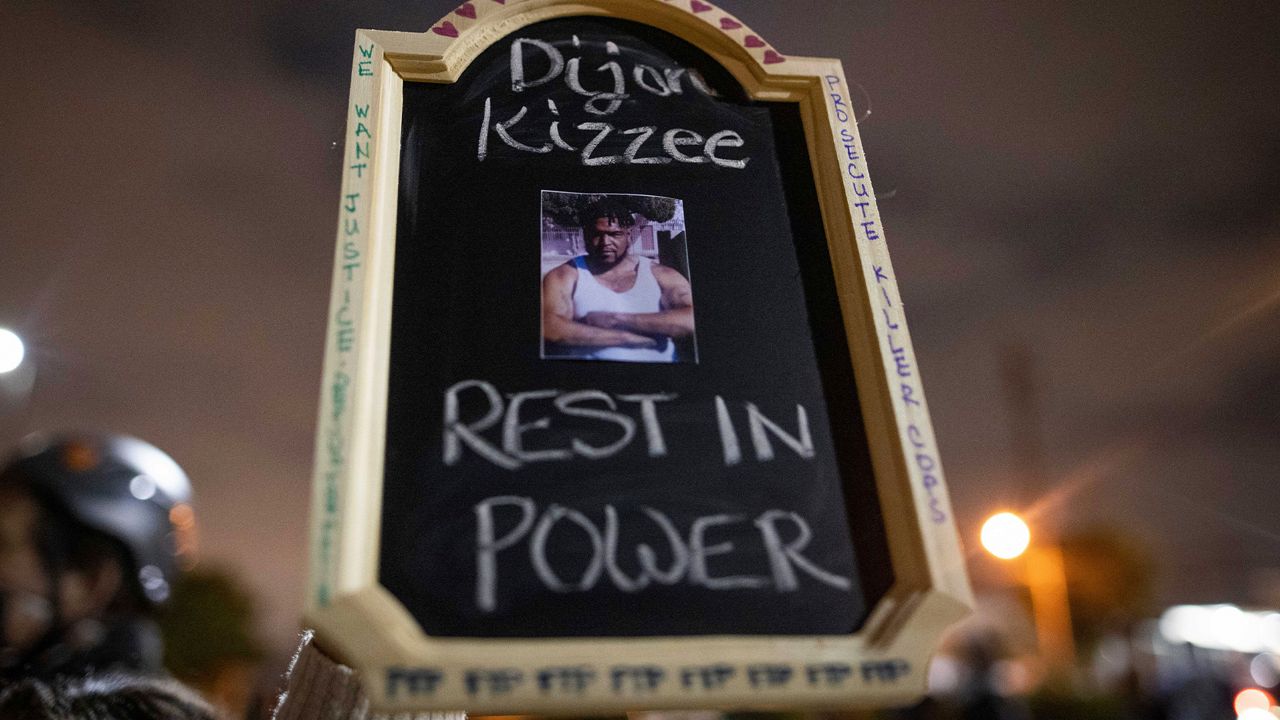COMPTON, Calif. (CNS) — The father of a 29-year-old Black man who was fatally shot by Los Angeles County sheriff’s deputies in 2020 has tentatively settled a lawsuit in which the plaintiff alleged issues of excessive force and the existence of deputy gangs.
Attorneys for Edwin Kizzee, the father of the late Dijon Kizzee, as well as the estate of Dijon Kizzee, filed court papers Monday notifying Compton Superior Court Judge Fumiko Wasserman that a conditional accord was reached, which is subject to approval by the county Claims Board. Wasserman scheduled a status hearing for Nov. 28.
Terms of the tentative settlement were not available.
The suit, filed against Los Angeles County in September 2021, alleged civil rights violations, assault and battery, false imprisonment and negligence, and also maintained the “improper influence of rogue deputy gangs within the sheriff’s department” created an environment that directly led to Dijon Kizzee’s death.
In their court papers, defense attorneys denied any wrongdoing or liability on the county’s part and maintained that the deputies acted “in good faith and without malicious intent.”
According to the suit, the county failed to properly train the deputies involved, and Dijon Kizzee did nothing to justify the level of force used against him. Dijon Kizzee was shot at about 3:15 p.m. on Aug. 31, 2020, by two deputies in the unincorporated community of Westmont, near South Los Angeles. The deputies initially stopped him for biking on the wrong side of East 110th Street.
Deputies said Dijon Kizzee refused to stop and, abandoning his bike, fled while carrying a gun wrapped inside a piece of clothing. He was confronted by the deputies shortly afterward on 109th Place, where one tried to detain him, the sheriff’s department has said.
The department contended that Dijon Kizzee dropped a gun during the confrontation with deputies, then picked it up during the physical confrontation and raised it toward them, prompting them to fire at him 19 times.
Dijon Kizzee’s attorneys maintained that he was “minding his own business” while riding his bike and that he was stopped for no reason.
The plaintiff’s lawyers further said Kizzee was shot with his hands in the air, then was shot repeatedly while he was on the ground. Plaintiff’s attorney Carl Douglas said previously that an independent autopsy determined Kizzee was shot 15 times and that he did not die instantly, but was “writhing on the ground in pain when officers opened up on him.”
Kizzee was “at worse, merely a Black man riding his bicycle in a manner that may be contrary to traffic safety regulations, but which is rarely, if ever, enforced by sheriff’s deputies patrolling that neighborhood, especially if the rider is not a Black male,” the suit stated.
The deputies had less-lethal alternatives to use on Kizzee and the plaintiffs believe he was not given a verbal warning before he was shot, the suit stated.
The suit further alleged the deputies unreasonably delayed getting Kizzee medical assistance.
Edwin Kizzee believed that each of the deputies are “hopeful members of gang-like cliques which have infected the patrol station where each of these defendants work. These deputy cliques have gang-like rituals, matching tattoos and initiation rites including the unreasonable use of deadly force on unsuspecting citizens with whom they interact.”
County officials knew or should have known that several sheriff’s department stations are “infected with this gang-like culture, but (have) done nothing to rid the department of this scourge,” the suit stated.



